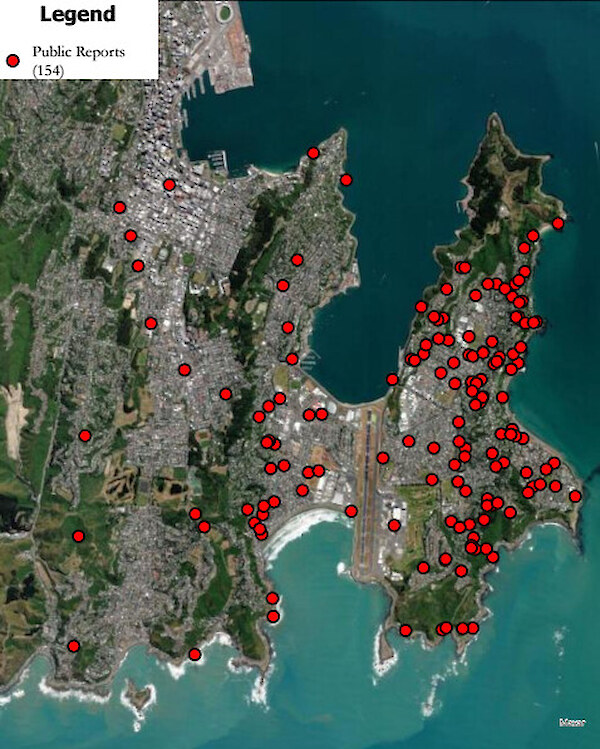Biosecurity remains top of mind for residents
This story was taken from our 2023/24 impact report.
 112 Miramar residents reported potential rat activity between January - September 2024.The Miramar community are essential for spotting rat invaders; they are our constant eyes and ears on the ground. Reporting possible rat activity is quick and easy, and for residents of Miramar it’s a natural expression of kaitiakitanga (guardianship).
112 Miramar residents reported potential rat activity between January - September 2024.The Miramar community are essential for spotting rat invaders; they are our constant eyes and ears on the ground. Reporting possible rat activity is quick and easy, and for residents of Miramar it’s a natural expression of kaitiakitanga (guardianship).
Between January and September 2024, residents reported 112 cases of potential rat activity. While the vast majority of these turned out not to be rats, we were grateful for the reports.
For our team, finding a rat in a cleared area is no reason to panic. We expect some individuals to reinvade and we use the same approach that removed rats in the first place. This is the system working and we are massively thankful to the community for helping us to keep Miramar Peninsula rat and mustelid free.
Rapid rat response
We take all rat sightings seriously, and aim to respond to every report within 24 hours.
There is no one-size-fits-all response to returning rats, but we generally get rat detector dog Rapu and handler Sally on the case.
If Sally and Rapu verify there is a live rat present, we then send in our Capture team.
The Capture team are our incursion specialists and will create a response area with a 150 metre buffer from the detection. Managing the response involves analysing camera footage, re-engaging with residents, servicing traps and bait stations and placing out additional detection cameras and chew cards over a wider area.
Response areas are treated much like rat hotspots, where the data is critically assessed after every visit and the servicing frequency, area and regime adjusted accordingly.
We’re always watching
Can we still call these areas ‘predator free’? Absolutely. We know rats or stoats can slip back in and we have a proven system to detect and remove them. No one is looking harder than us. Wellingtonians also fully support having a predator free city and their reports are essential. We are confident there are no rats in biosecurity areas and when we occasionally find one has snuck in, the Capture team swoops in to take care of it.
Read more about our Capture team here.

Posted: 13 January 2025
